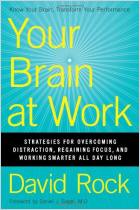
Neuroscience for Leadership
Harnessing the Brain Gain Advantage
Recommendation
Many books and articles apply recent advances in neuroscience to daily life, business and leadership. This addition to that collection is fortunately more useful and down to earth than most. Leadership and management specialists Tara Swart, Kitty Chisholm and Paul Brown express complex ideas in a welcome, readable voice. They waste little time proselytizing for the soundness of their ideas or claiming to unveil a major paradigm shift. Instead, they revel in offering a clear, pragmatic guide to applying concepts from neuroscience to life and leadership. Their advice is fundamental and easily applicable. Don’t let the title daunt you – the authors aggregate and explain a lot of useful wisdom, capably translating science for a lay audience. getAbstract recommends their eye-opening conclusions to everyone interested in neuroscience, self-improvement or leadership.
Summary
About the Authors
Tara Swart, CEO of The Unlimited Mind, is a senior lecturer at MIT. Kitty Chisholm is a founding director of Boardwalk, which helps women achieve their leadership potential. Paul Brown teaches organizational neuroscience at Monarch Business School, Switzerland.


















Comment on this summary or Diskussion beginnen